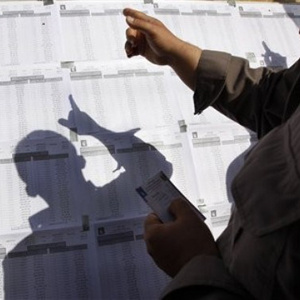What Should Tehran Expect?

 With Iraq’s parliamentary election held yesterday, another step was taken towards the process of nation-state building in the post-Saddam Iraq. naturally, violence and other sorts of radical behavior will imbue the process with difficulties. But these should be taken for given as well look at the texture of the Iraqi society; its ethnic and religious gap, interest conflict of neighboring countries and infiltration of terrorist groups, from al-Qaeda to remnants of Baath.
With Iraq’s parliamentary election held yesterday, another step was taken towards the process of nation-state building in the post-Saddam Iraq. naturally, violence and other sorts of radical behavior will imbue the process with difficulties. But these should be taken for given as well look at the texture of the Iraqi society; its ethnic and religious gap, interest conflict of neighboring countries and infiltration of terrorist groups, from al-Qaeda to remnants of Baath.
Iran’s influence on the election in Iraq should be considered natural, given the historical, cultural, civilizational and religious ties of both countries. The dynamics of this influence however may change within the next few years. Rise of technocrats or some Muslim secular groups will leave no political domain intact, even that of Tehran-Baghdad relations.
Predictions are that the result of parliamentary elections will lead to diversification in Iraq’s political structure. Forces which had boycotted the previous election (radical Islamists –particularly among the Sunni population- and Baath members) will raise their profile and undermine heavyweight coalitions inside the parliament.
Power was in the hand of a broad alliance of Islamist groups revolving around the Supreme Islamic Iraqi Council (SIIC), Islamic Dawa Party, Islamic Action Organization in Iraq -supported by some minor affiliates. The coalition, which had sideline Sunni groups of parliament, will not be as powerful as it used to be, since new alliances will emerge which will not give the lever to either Shiite or Sunni groups.
With the dynamics of domestic politics undergoing change in Iraq and rise of new forces, Iran should expect challenges in its ties with Iraq. Arabs’ nationalistic sentiments have generally overridden their religious affiliations. Fault lines which threw Iran and Iraq into constant struggle during Saddam Hussein’s rule may reemerge, albeit with less intensity.
The quality of countries’ mutual intervention in domestic affairs, chronic territorial disputes, Iraqi Kurdistan’s fertile ground for the Islamic Republic opposition, PJAK (militant Kurdish nationalist group) terrorist attacks etc. will once again turn into bones of contention.
If there was one country which the new Iraq would enter a battle with, that would be Iran.

